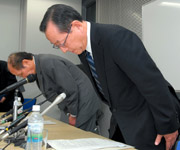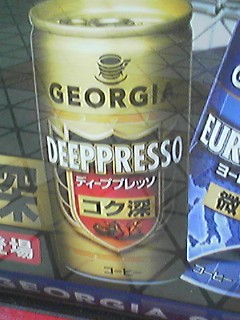I’ve been back in the US for about two months now, and while I’ve settled back into the full-time student routine here, I can’t get over the feeling that I’ve left something better behind.
A few weeks back I came across this post by Debito while I was having a minor bout of insomnia, and it sums up the feeling perfectly.
I liken a trip back to America to Superman making a trip back to Krypton.
When Siegel and Schuster first made the Man of Steel, they had to inject a little science into their fiction, because comic-book hero or not, an invulnerable superhuman was a little hard to believe. So they talked about Clark Kent coming from a planet called Krypton, which being more dense than Earth has a higher amount of gravity. So when Clark crashlanded on Earth, he was superstrong because things were physically lighter, and he had X-Ray vision from eyes attuned to a different opacity. Superman’s nemesis was, of course, fragments of rock from his home world–Kryptonite–which made him lose all his powers.
Hence America becomes my Krypton because I feel absolutely sapped of strength there, even at the most interpersonal levels.
Here in Japan, I can relate more to people; they generally give me the time of day and listen to what I say. This could be due to their interest in America, their tendency towards deference with White people, or my ability to describe in Japanese what I see around me–my X-Ray vision, so to speak.
In terms of strength, here I feel I can accomplish more in a negotiation than the average Japanese–with the right mix of loud voice, humility, deliberate ignorance of custom, and choices of which battles to fight.
Then there’s the financial and emotional integrity in Japan (something which even Clark Kent, with a shitty job as a reporter at the Daily Planet, didn’t have); here, I’m not troubled for money, bored with bad food, starved for pretty women to gaze at, or frustrated by a lack of intellectual challenge.
Now, anyone who’s been in Japan for a substantial amount of time probably knows about Charisma Man, the little comic book about a Canadian “geek” who goes to Japan and becomes the ultra-cute “Charisma Man.” Charisma Man can clear a train car in 5 seconds and scare away oyaji by showing off his elephant-like penis. His arch-enemy, naturally, is Western Woman! who can turn him back into a geek just by looking at him.
It’s a true enough phenomenon. Western guys who go to Japan all become Charisma Men to some degree, and the ones who have charisma before they come to Japan become practically superhuman. But the mystery is: why? And everyone seems to have their theories.
I talked about this with Roy, and he seems to believe that it’s a question of audience selection: there’s just a subset of Japanese people who are interested in foreigners (particularly women interested in men), and that’s the attention that turns foreign guys into Charisma Men. That’s probably not a bad theory.
But there’s another half to it, and I think Debito hits it squarely on the head. When you aren’t brought up in Japan, you don’t worry about being the deru kugi–the nail sticking up–and that puts you ahead of those who do. I think it’s a lack of that dreaded word from elementary school: self-esteem. I vaguely remember trying to explain that concept when I was in high school in Osaka. I had to look it up in my electronic dictionary. That communicated the word, but not the concept. The teacher said: “Oh, like selfish?”
And indeed, when I talk to Japanese people in America, many seem to feel the exact opposite effect as Debito and I do. They come to the US, and often they become Charisma People (men and women alike), living freely without a society telling them what to do.
Maybe it’s just psychosomatic. Maybe we just have to be in the environment that we enjoy. So maybe it’s more appropriate to give each their own. Let Mariko have freeways and beaches and pizza: let me have subways and sakura and sushi, and we’ll be even. Which is why I’m all about a world with fewer borders.



 First, we have
First, we have 